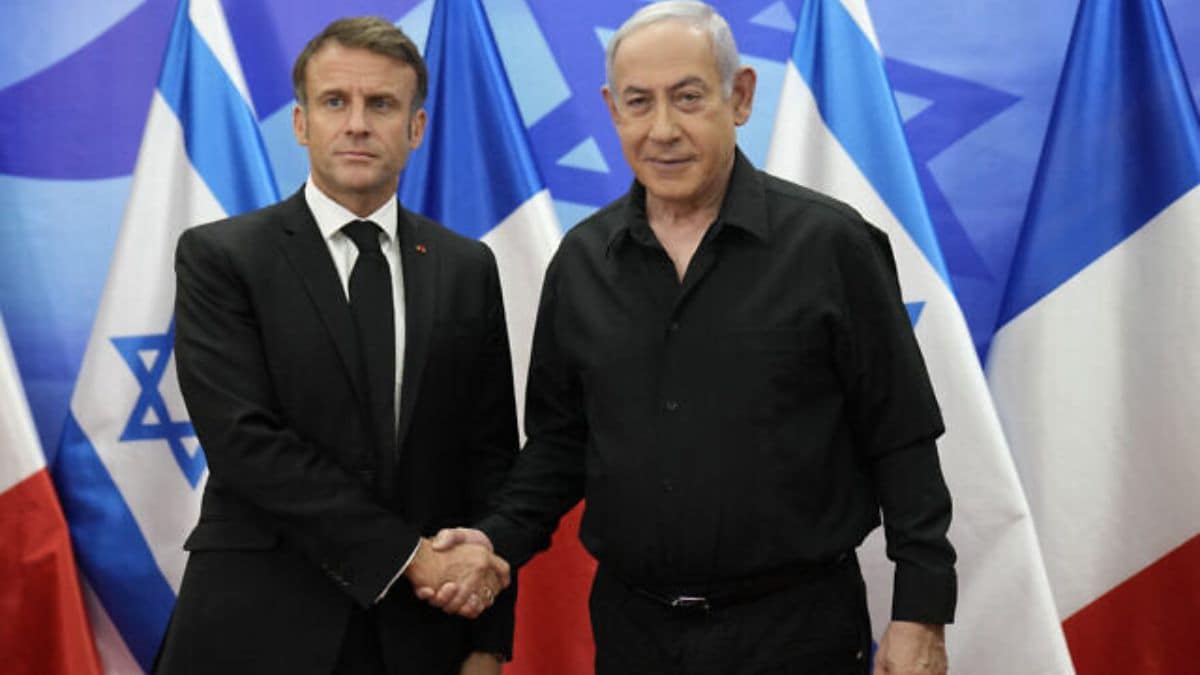France appeared to have changed its stance on the ICC arrest warrants against Israel’s PM Benjamin Netanyahu and Defence Minister Yoav Gallant. Paris argued that the Israeli leaders have immunity from arrests since Israel is not a member of the international tribunalread more
France appeared to have changed its stance on the looming arrest warrants against Israel’s Prime Minister Benjamin Netanyahu and Defence Minister Yoav Gallant, which were issued by the International Criminal Court (ICC) earlier this month. The French government on Wednesday stated that both Israeli leaders have immunity from the arrest warrants since Israel is not an ICC member.
Interestingly, France’s assertion came soon after the Netanyahu cabinet agreed to a French-backed ceasefire in Lebanon. However, it was in contrast to Paris’s attitude last year when the ICC issued an arrest warrant against Russia’s President Vladimir Putin and another leader of a non-member country.
France had initially hinted that it would fulfil its obligation as a signatory to the Rome Statute, the ICC’s founding document, if either visited the country. However, the country’s foreign ministry changed its tone on Wednesday, insisting that both Netanyahu and Gallant have immunity since Israel is not a signatory to the statute.
What did France say on the matter?
In the statement, the French authorities referenced Article 98 of the Rome Statute, which states that a country cannot “act inconsistently with its obligations under international law with respect to the … diplomatic immunity of a person,” The Guardian reported. However, Article 27 of the same statute states that the immunity of high office “shall not bar the court from exercising its jurisdiction over such a person.”
The French authorities seemed to ignore Article 27 while putting its argument forward. “A state cannot be held to act in a way that is incompatible with its obligations in terms of international law with regard to immunities granted to states which are not party to the ICC,” the French statement said.
“Such immunities apply to Prime Minister Netanyahu and other ministers in question, and must be taken into consideration should the ICC ask us to arrest them and hand them over,” the statement further reads. Meanwhile, in 2019, the ICC ruled that Article 98 was not a “fountain of immunity” but rather a “procedural rule” that guided how the court should ask for a warrant to be carried out.
Last month, the court ruled that Mongolia had violated its obligations as a party to the ICC by failing to arrest Putin when he visited the country in August. The court made it clear that Article 98 did not provide immunity from the war crimes charges against the Russian leader.
At that time, the French foreign ministry fully supported the international tribunal. However, after the Wednesday statement, Amnesty International France pointed out that the French position on Netanyahu “runs counter to France’s fundamental obligations as a member state of the ICC.”
“A cornerstone principle of the ICC statute is that no one is above the law, including heads of state, sought for arrest, such as Vladimir Putin or Benjamin Netanyahu,” the human rights group said. “This has been confirmed in a decision by the court’s appeals chamber in jurisprudence which is binding on all member states.”
It is pertinent to note that France is not the only country to go easy on Netanyahu. David Lammy, the UK foreign secretary, said he would continue to engage with Netanyahu despite the arrest warrant. However, Lammy emphasised that the UK is under an “obligation” to refer the Israeli leader to the domestic court system if he came to the UK.
“Should those named seek to come into our country that doesn’t allow me any discretion, I will issue that, transmit that to the courts, and then the courts will make their determination under our law,” Lammy told parliament’s foreign affairs committee.
With inputs from agencies.
